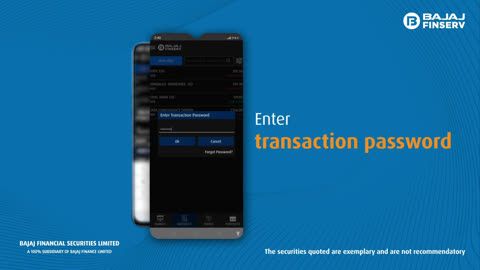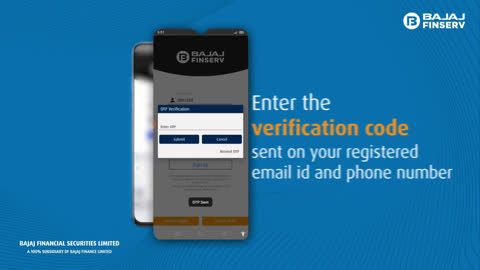A depository participant commonly referred to as DP is a vital player in the securities market. They provide services to institutional and retail investors. We need to understand the meaning of a depository before we proceed further.
Understanding Depositories
Trading has gone through a significant evolution over the years. From paper documentation to digital format, it has come a long way. In simple words, a depository is an entity responsible for maintaining securities electronically. They allow investors to own, store, and exchange securities online. There are two depositories in India: National Securities Depositories Limited (NSDL) and Central Securities Depositories Limited (CDSL). National Stock Exchange and the Bombay Stock Exchange promote them, respectively. They are national share depositories that operate under the provisions of the SEBI Act.
Meaning and Basics of a Depository Participant
With the sudden outburst in the number of investors, it was difficult to tackle the volume of documentation associated with such trades. Also, the risks associated with paper-based transactions were critical. It is here that the need to have a Depository Participant (DP) became a must.
An investor who is a new entrant in the stock markets needs to approach a DP for the opening of a Demat Account. Entities like brokerage firms, banks, etc., act as DPs. They are the main links between the investors and the depositories.
Some of the other services provided by Depository Participants
- Through a Depository Participant, after Demat account opening, clients could avail of services like Rematerialization and Dematerialization of shares.
- Depository Participants maintain records of securities that are held by investors.
- Pledging and unpledging of securities for loan purposes occur through Depository Participants.
Additional Read: Trading account vs demat account
Depository Participant Vs. Depository
Depository |
Depository Participant |
Depositories are institutions providing Demat account services. Shares are electronically stored here. |
Depository Participants act as intermediaries between the traders or investors and the depository. |
There are only two main Indian Depositories: ● National Securities Depository Limited (NSDL) ● Central Depository Services Limited (CDSL) |
Any institutional body can apply to become Depository Participant under the depositories. They need to follow the required SEBI guidelines. |
Direct client interaction doesn’t happen. |
Direct interaction happens. |
Direct Demat account opening not possible. |
Depository Participants help in Demat account opening. |
Depositories in India
In India, there are two primary depositories: National Securities Depositories Limited (NSDL) and Central Securities Depositories Limited (CDSL). Depositories maintain financial securities such as stocks, shares, and bonds digitally and enable online trading in stock exchanges.
The Depository Act passed by the Indian government in 1996 directs both the National Stock Exchange and the Bombay Stock Exchange to arrange their depositories.
NSE has set up NSDL and is promoted by IDBI and UTI, whereas the BSE has set up CDSL. Both these depositories function similarly and adhere to the guidelines provided by SEBI.
Trivia: CDSL becomes the first depository to open six crores active Demat accounts!
Additional Read: Share market trading basics
Role and Functions of a Depository Participant
● Open Demat accounts – DPs help open Demat accounts, a prerequisite to trading on the stock exchange.
● Ensure the safety and security of investments held electronically.
● Transfer of securities – Depository Participants enable the transfer of shares and other financial assets seamlessly.
Conclusion
When choosing a depository participant, you must ensure that you have a robust mobile and desktop platform so that you can access your Demat account from anywhere in the world. Be sure to select a reputed DP and check all the applicable charges. DP charges tend to vary from one DP to another. Some depository participants provide custom services for clients with specific needs. You should select a DP that satisfies your requirements without compromising the service quality. Bajaj Financial Securities Limited is one such DP that meets the above. If you do not have a Demat account with BFSL, open one today and avail of their expertise right away!
Frequently Asked Questions on Depository Participant
What is the function of a Depository Participant (DP)?
The Depository Participant acts as an intermediary between investors and the depository. They give Demat account access to investors. They also offer services such as portfolio management, IPO intermediation, and mutual fund distribution.
Can I close my Demat account with one DP and transfer all securities to another DP with another account?
Yes, you can do it by off-market transactions wherein you submit the DIS slip to the DP where the shares are lying in your Demat a/c. Also, submit an account closure request via your DP. Basis your instructions, your DP will transfer your securities and close the Demat account.
Is it necessary to have an account with the same DP as the broker?
It is not necessary. The investor can select any DP according to his choice or convenience and continue with his trading activities through his chosen broker.
Can I open a Demat account directly with a depository?
The answer to this is no. You cannot directly open a Demat account with a Depository. You have to do it via a Depository Participant (DP).
As an investor, can I open multiple accounts?
Yes, you can open multiple Demat and trading accounts with different brokers. However, you cannot legally open multiple Demat and trading accounts with the same DP or the same broker.
When do the DP issue the transaction and holding statement?
You can directly access your transaction and holding statements in real-time through your Demat Account provided by the DP.
How similar are a bank and a depository?
Depositories are similar to banks in that they are both digital repositories of a particular financial asset. The difference lies in the fact that banks hold cash and funds for you, unlike depositories, which hold shares and other securities on your behalf.
Who is a Depository Participant (DP)?
A Depository Participant is the depository's agent providing Demat accounts to investors. They act as the main link between investors and depositories.
DISCLAIMER:
While care is taken to update the information, products, and services included in or available on our website and related platforms/websites, there may be inadvertent inaccuracies or typographical errors or delays in updating the information. The material contained in this site, and on associated web pages, is for reference and general information purpose and the details mentioned in the respective product/service document shall prevail in case of any inconsistency. Subscribers and users should seek professional advice before acting on the basis of the information contained herein. Please take an informed decision with respect to any product or service after going through the relevant product/service document and applicable terms and conditions. In case any inconsistencies observed, please click on reach us.
*Terms and conditions apply








